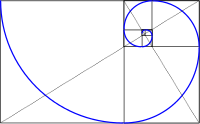In the first part we discussed how to compute the sum of proper divisors function  from the sum of divisors function,
from the sum of divisors function,  . We saw that if we factorize the number
. We saw that if we factorize the number  then compute the list divisors from prime factor, it was much faster (on average) than testing each possible numbers from
then compute the list divisors from prime factor, it was much faster (on average) than testing each possible numbers from  to
to  (or
(or  , since we get one large divisor for every small divisors).
, since we get one large divisor for every small divisors).

So now, let’s all put that together to get an efficient program that enumerates amicable pairs. First, we obtain a list of primes (not missing any) where the largest prime is  , the largest number we will be testing—we need it to compute (up to)
, the largest number we will be testing—we need it to compute (up to)  . If we were to search for all amicable numbers, the list would need to be unbounded, maybe we would need to produce it as we go along; but if we look for amicable pairs up to, say, about
. If we were to search for all amicable numbers, the list would need to be unbounded, maybe we would need to produce it as we go along; but if we look for amicable pairs up to, say, about  , we only need primes up to
, we only need primes up to  (and there’sn’t that many of them). For the sake of efficiency, we also need a way of not testing a number twice.
(and there’sn’t that many of them). For the sake of efficiency, we also need a way of not testing a number twice.
Read the rest of this entry »
, tests a number in
steps, but we haven’t determined the complexity of the other method. Let’s do that now.




 Posted by Steven Pigeon
Posted by Steven Pigeon 

